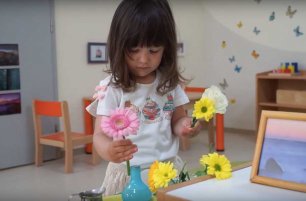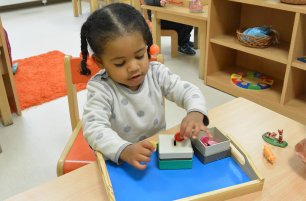Ahh-Choo! It’s that time of year - Teaching Self Care to Toddlers
In our classrooms, we take every opportunity to teach our students how they can independently take care of themselves throughout the day.
These skills help build their confidence and sense of self-worth and create opportunities for natural Grace and Courtesy lessons with and between the children. Some daily activities that we do include hand washing, teeth brushing, face cleaning after meals, and of course - proper etiquette when coughing and sneezing. The most important aspects to remember are consistent modeling, a prepared space in your environment, and kind reminders with a gentle tone.
Nose wiping
We teach our students to cough or sneeze into their elbow by proper modeling on ourselves, showing how to move the arm up and over the mouth inside the bend of the elbow. We also use gentle reminders like “Remember you can cough like this” with modeling.
After a child sneezes or when appropriate, we say “I see you need a tissue for your nose” or we ask “What do you feel under your nose? Let’s go to the mirror and take a look”. You can have an area set up with a tissue box, mirror, and small waste bin so your child knows where to go when they need it and they can help themself.

When showing your toddler how to clean their nose, first model taking a tissue and wiping your own nose. Show your child how to hold the tissue on the nose, placing your hand under the tissue with your thumb and fingers up. For some children it’s easier to use two hands so you can also model using both hands.
Then you can show how to move the fingers together wiping up and away from the face. Place the used tissue into the waste bin.

You can assist your child, as needed, by helping hold their hands in place with the tissue and practicing the movement of putting the thumb and fingers together, then wiping up and away from their nose. Don’t forget to remind your toddler to wash their hands after they handle used tissues.

Face cleaning
Have an area set up with a mirror at the child’s level, tissues, and cloth wipes readily available. In the bathroom, a small step stool can be helpful or you can use a low table with a mirror. Practice modeling using a wet cloth or wet wipe to clean your face while down at your child’s level and looking in the mirror. Then your child can use their own cloth to clean their face, or if you have a step stool at the sink your toddler can wash their face using water and their hands while supervised. The key point is that they have the space and access to items needed with loving and gentle support.
By Lindsey Taylor
Want to learn more? Read our next article:




